Sunak Says UK Investigating If Universities Helping Iran On Drones
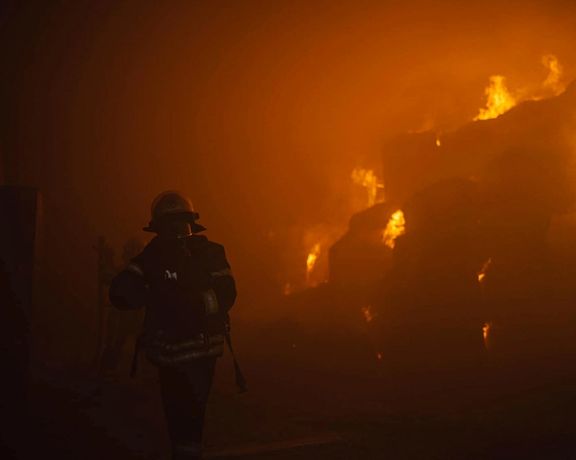
Britain said Wednesday it was investigating allegations that UK universities have cooperated with Iran on drones and other key technologies despite a legal ban.

Britain said Wednesday it was investigating allegations that UK universities have cooperated with Iran on drones and other key technologies despite a legal ban.
With Russia using hundreds of Iranian-made suicide drones in Ukraine since October 2022, Prime Minister Rishi Sunak was grilled in parliament about the report by the Jewish Chronicle earlier this month.
“We take all allegations of breaches of export controls seriously and my understanding is that officials in the Department for Business and Trade are currently now investigating the allegations made in the recent press article cited,” Sunak said.
“We will not accept collaborations which compromise our national security,” he said, pointing to stepped-up controls on academic collaborations in technology.
Alicia Kearns MP, chair of the Commons Select Committee on Foreign Affairs had earlier said: “This is a horrifying collaboration, one that I fear risks breaching sanctions in place around sensitive and dual-use technologies.”
According to the Jewish Chronicle, Tehran funded researchers in Britain working on improving drone engines in a project that boosted altitude, speed, and range.
In addition to its ban on military and "dual-use" technologies being exported to Iran, the UK has recently imposed new sanctions against Iranians supplying Russia with kamikaze drones that are being used in Ukraine.
At least 11 British universities, including Cambridge, Cranfield, Glasgow and Imperial College London, were named by the Jewish Chronicle as taking part in studies with potential Iranian military applications.

Hamas Political Chief Ismail Haniyeh met Supreme Leader Ali Khamenei in Tehran shortly after the Palestinian group killed four Israelis.
The killing happened near the West Bank settlement, Eli, in what Hamas called a response to a major Israeli operation in nearby Jenin.
Emergency services reported that four other people were wounded, including a minor, when the gunmen opened fire at a roadside restaurant and a gas station near Eli settlement.
After the attack, Israel said it was beefing up its forces’ presence in the West Bank.
Authorities said the two gunmen belonged to Hamas' armed wing. One was killed by a civilian at the scene and the other by Israeli security forces.
Hamas, which controls the Gaza Strip and has a network of fighters across the West Bank, described the attack as a "heroic" response to Monday's Israeli operation in Jenin and said it may be followed by more actions against Israelis "that will shatter their fragile state and turn the lives of their soldiers and settlers into a nightmare".
Israel blamed Iran for a large-scale military confrontation in early April when Palestinian groups aligned with the Islamic Republic launched hundreds of rockets against Israel from Gaza and Lebanon.
The Iranian regime as a Shiite Muslim political force has limited appeal with Sunni Muslims and its reach is mainly among Shiites in Middle Eastern countries, such as Iraq and Lebanon. However, it directs billions of dollars a year to finance an array of militia forces and their political networks.
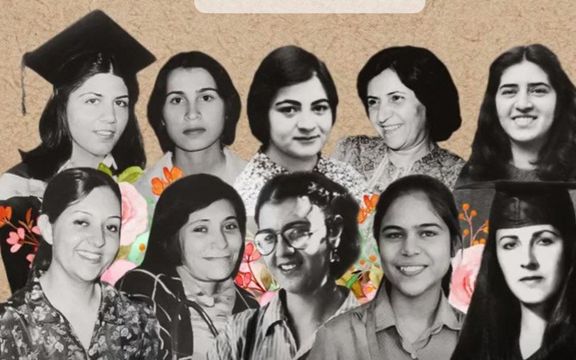
Followers of the Baha’i faith in Iran and abroad have held events to commemorate 10 Baha'i women who were hanged in the city of Shiraz on June 18, 1983.
Two days before the executions, six Baha'i men had been also hanged over trumped up charges. They were among the 22 Baha’is who were sentenced to death out of about 100 Baha'i arrested as part of a crackdown in the southern city of Shiraz in the spring of 1983.
They were convicted for espionage as well as promoting Baha’i faith but in reality their crime was not recanting their beliefs, long hated by the Shia Muslim authorities who had taken over Iran a few years earlier.
The youngest of these women was Mona Mahmoudnejad, a 17-year-old girl whose father was also executed four months earlier, and the oldest of them was 57-year-old Ezzat Janami-Eshraghi, executed along with her daughter Roya that day, and two days after their father Enayatollah Eshraghi.
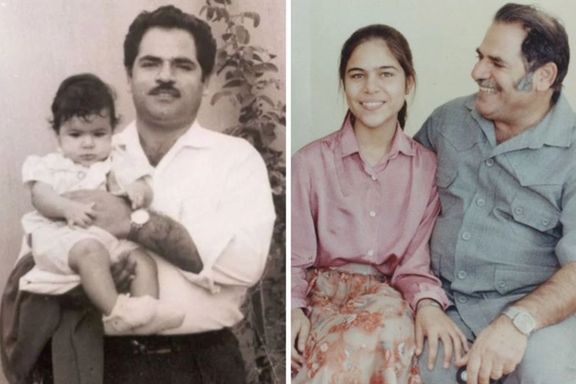
According to Ronald Reagan, the then US president who had pleaded to world leaders to join him to prevent the Iranian government's decision to execute the 22 Baha'is, 113 had already been hanged across Iran since the establishment of the Islamic Republic.
Ruhollah Khomeini, the founder of the Islamic Republic, replied to Reagan’s plea at the time, saying: “If we don't have any other reason that they are American spies, Reagan's support for them is enough."
In the past several days, Iranian expatriate communities in addition to Baha’is and relatives of the victims held events to condemn the Islamic Republic’s executions and the unrelenting persecution of ethnic and religious minorities.
After an event in Oslo, Norwegian-Iranian politician Bijan Gharahkhani told Iran International that the most important issue for Iran today is the unity among people from different ethnicities and religions. He expressed hope for a future Iran in which no one is persecuted for their identities and views.
In Canada, Nahid Mazloum, the other daughter of Ezzat Janami Eshraghi who survived and escaped from the Islamic Republic, told New Canadian Media that “life goes on, but the pain never goes away,” before addressing a gathering of about 650 people from the Baha’i community in Vancouver last Friday, June 16.
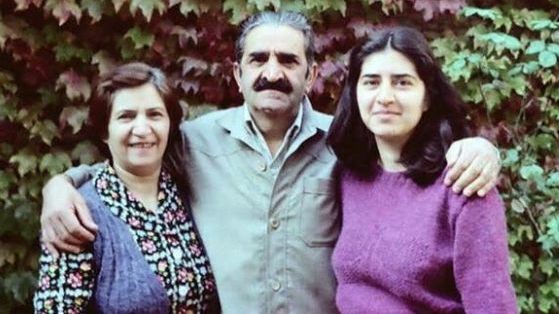
Canadian Prime Minister Justin Trudeau, in his message to the community in April during Ridván — a 12-day festival and the holiest time of the Baha’i calendar — said Canada is deeply concerned about the injustices endured by members of the faith in Iran.
In a letter from inside prison obtained by Iran International, human rights activist Narges Mohammadi said the execution of Baha’i women was “a manifestation, representation, and exposure of the tyrannical, anti-women regime of the Islamic Republic.”
The campaign of terror against Baha’is has been intensifying in recent years, according to the Worldwide Baha’i Community’s statement published in July 2022.
The Baha’i -- who number around 300,000 in Iran -- are the most persecuted religious minority in Iran. They are deprived of government jobs and university education, and the regime periodically instigates attacks on their communities, arrests them, confiscates their businesses and other assets, and demolishes their houses. The intelligence apparatus of the regime usually accuses the arrested Baha’is to having connections with the Baha’i Universal House of Justice in Haifa, Israel, the nine-member supreme ruling body of the Bahaʼi Faith.
Established by Bahaullah in the 19th century, the Baha’i faith initially spread in Iran and parts of the former Ottoman empire and remained mostly confined to Iran and the Ottoman empire until after the death of Bahaullah.
Its roots trace back to the religion of Ali-Mohammad Shirazi, known as the Bab (the gate), the founder of Babism who claimed to be a messenger of God in southern Iran in 1844. The Bab who said God would soon send a new prophet to mankind was executed for heresy against Islam which considers Muhammad as the last prophet of God.
In 1863 Bahaullah, the founder of Baha’i faith who was banished from Iran and settled in Iraq later, announced that he was the prophet promised by the Bab. The leadership of Baha’is fell to his son Abdul-Baha after his death in 1892 near Acre in present day Israel.
Baha’is believe in Muhammad as a prophet of God, and in the Quran as the Word of God while the Shia clergy consider Babism and the Baha’i faith as heretical sects.
The 1979 constitution of the Islamic Republic recognizes only Islam, Christianity, Judaism and Zoroastrianism. Supreme Leader Ali Khamenei has on several occasions called the Baha'i Faith a cult and in a religious fatwa in 2018 forbade contact, including business dealings, with followers of the faith.
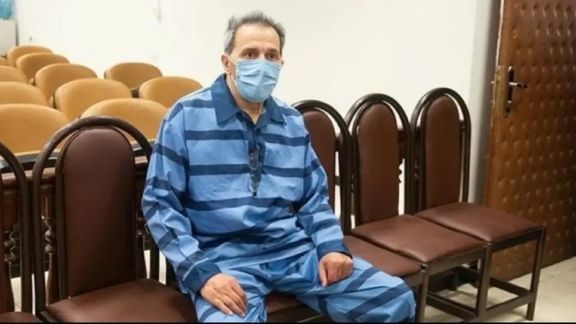
The daughter of German citizen Jamshid Sharmahd, imprisoned in Iran, has filed a criminal complaint against eight judicial officials.
Der Spiegel has learned that Gazelle Sharmahd wants the federal prosecutor's office to investigate “crimes against humanity” in collaboration with the Berlin-based European Center for Constitutional and Human Rights (ECCHR).
Iran’s judiciary approved the death sentence of Sharmahd in April for alleged involvement in terrorism.
The news of Sharmahd’s kidnapping in Dubai and transfer to Tehran by regime agents was first released in August 2020. He was accused of heading a pro-monarchist group, Kingdom Assembly of Iran, behind a deadly 2008 bombing and planning other attacks across the country.
Based in Los Angeles, the little-known group seeks to restore the Iranian monarchy that was overthrown by the 1979 Islamic revolution. It also runs pro-Iranian opposition radio and television stations abroad.
"My father's case is representative of thousands of Iranians and dozens of European citizens who have experienced the same thing," Gazelle Sharmahd told Spiegel.
From July 2022, several trials were held and at the end of February 2023 he was sentenced to death for "corruption on earth". His sentence could be enforced at any time.
Gazelle claims her father has been tortured since his incarceration. He is being held in solitary confinement at an unknown location receiving no medication for his Parkinson's disease and diabetes. He was also repeatedly physically abused.
Gazelle hopes that possible judicial investigations will increase the pressure on the federal government to fight for her father's case.
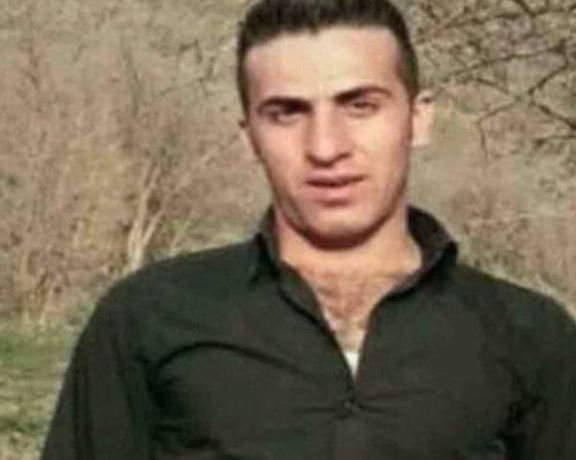
A Kurdish political prisoner was executed on Wednesday morning in Sanandaj Central Prison of Iran’s Kordestan Province.
The judiciary of the Islamic Republic is yet to respond about the reports of the execution of Hayman Mostafaei published by Hengaw human rights organization and the Free Union of Iranian Workers.
Reports on social media say a rally was also held in front of prison on Tuesday night to prevent the execution of the 34-year-old political prisoner.
“The people of Sanandaj and a large crowd coming from Marivan gathered in front of the prison and did their best until the last moment to save Mustafaei’s life, but they took the life of another person,” wrote the Free Union of Iranian Workers.
Mustafaei was accused of killing an IRGC member in 2012 and sentenced to death after being tortured to obtain a forced confession.
In recent months, the Islamic Republic has expedited the execution process of imprisoned citizens.
Many of the people executed in recent months were accused of killing security forces, however, the Islamic Republic has never opened any case to investigate the killing of protesters by security forces.
UN High Commissioner for Human Rights, Volker Türk expressed concern over the increase in executions in Iran on Monday, saying " I am concerned by the massive recent increase in executions, as well as continuing discrimination against women and girls."
“Iran continues to engage formally with my office, including on issues pertaining to discrimination against women and girls; accountability for severe human rights violations; and imminent executions,” added Türk.
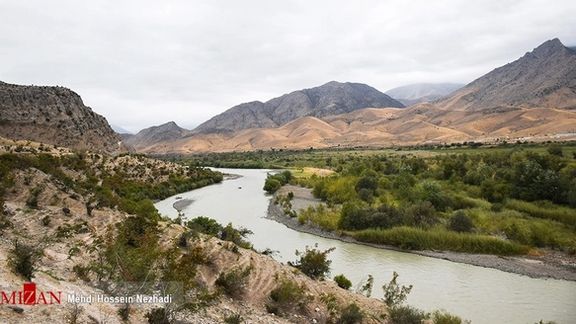
Media reports about possible radioactive contamination of Aras River in Iran’s northwestern borders by Armenia’s nuclear power plant has led to widespread concerns.
However, Iran's Nuclear Safety Center has refuted the reports. In a statement on Tuesday, the center which is an affiliate of Atomic Energy Organization of Iran (AEOI) said the river Aras is monitored at least once a year for radioactive pollution and that the last survey in March this year did not indicate any radioactive pollution as claimed by Payam-e Ma newspaper on Monday.
Quoting a paper published earlier by the Border Studies Research Journal of the Iranian police, Payam-e Ma on Monday suggested that the extremely high occurrence of various types of cancers and liver diseases in Ardabil Province bordering the Republic of Azerbaijan, could be attributed to radioactive pollution of the Aras River emanating from Armenia’s nuclear power plant situated in Metsamor hundreds of kilometers to the west.
Payam-e Ma’s article followed a warning on June 12 by Mahmoud Abbaszadeh-Meshkini, a member of the Iranian Parliament’s National Security and Foreign Policy Committee who claimed that effluent from the power plant which was polluting the river could be the cause of the high occurrence of cancer in Iran’s Ardabil.
However, the cause of the high rate of cancer in the area is hard to establish. It is not clear whether the phenomenon is related to the environment or has other underlying reasons. But concerns linger on as many do not trust the Iranian government on the issue of radioactive contamination.
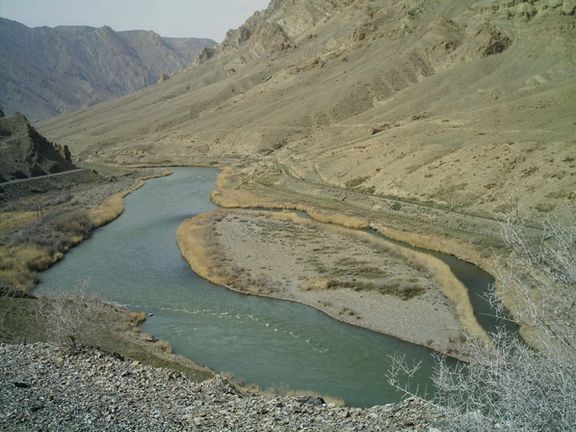
A deputy health minister, Dr. Reza Malekzadeh, told the media in October 2020 that a longitudinal study carried out over a period of 20 years about the occurrence of stomach cancer in Ardabil Province has shown a rate of 50 per 100,000 of the province’s population. This is the highest rate in the country.
However, the Nuclear Safety Center’s statement said the Armenian power plant is too far from the Aras for its effluent to reach the river and pollute it as claimed.
The Aras River which rises in Turkey forms part of Iran's border with its northwestern neighbors, Armenia and Azerbaijan, before flowing into the Kura River in Azerbaijan.
“The Aras River is being continually monitored for radioactivity and other required substances,” the statement said and added that the center will establish an online water monitoring station in the said area very soon to carry out tests.
In the past ten years, Iranian officials have repeatedly denied radioactive pollution of the Aras River by the Armenian nuclear plant.
Metsamor Nuclear Power Plant which is the only nuclear power plant in the South Caucasus was built in the 1970s. The two units of the plant provide a total of 815 MW of electricity and supplied approximately 40 percent of Armenia’s electricity in 2015.
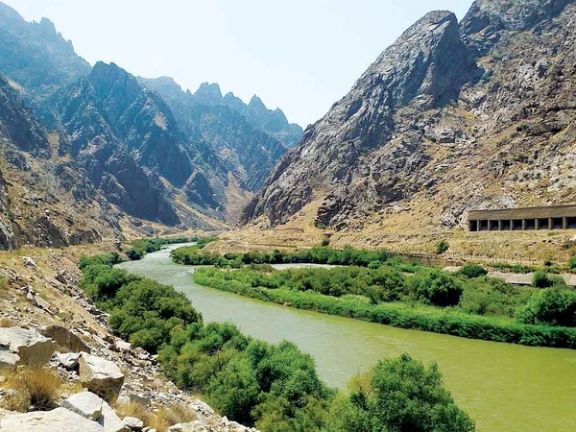
The plant has been a source of environmental concern since the Spitak Earthquake in 1988 which led to its closure until 1995. The plant has been classified by the EU as the oldest and least reliable of all the 66 reactors built by the former Soviet Union.
The International Atomic Energy Agency (IAEA), however, said in 2011 that the plant posed an “acceptable” level of risk to the environment and could “in principle” operate beyond its design life span.
The media have also warned that heavy metals in the effluent of other industries in Armenia, Turkey and Iran have been polluting the river for many years. Most of the pollution, however, is apparently caused by Armenian copper mines and plants in the area.
Firuz Ghasemzadeh, spokesman of the Iranian Water Industry, told the Iranian Labour News Agency (ILNA) on May 10 that the Iranian ministry of energy and both Iran’s and Armenia’s departments of environment had been investigating the pollution caused by the Armenian mines.
According to Ghasemzadeh, sources of pollution were eliminated by installation of water treatment facilities, but occasional pollution was still possible. He also stressed that Armenia has given assurances that it would control the sources of pollution.